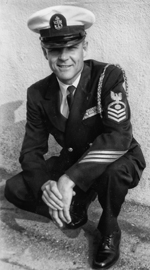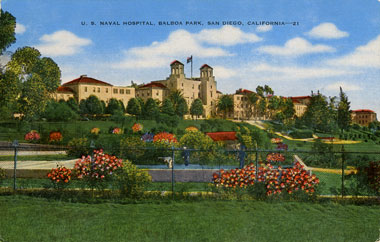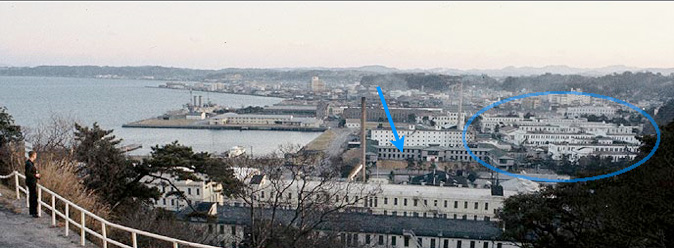A navy corpsman joins the marines — Part 1
Author’s Note: Despite the title of this web page, I did not really become a Marine. The Marines invited me into their camp, so to speak, gave me Marine uniforms, introduced me to Marine culture, taught me a little about what I could expect in combat, and even armed me. More importantly, they accepted me, despite my lack of credentials, as a fellow Marine, which meant that they were willing to die for me and, in fairness, expected me to do my best to keep them alive. I hope that I met their expectations. I know that of all people on earth, I admire U.S. Marines above all for their courage, their honesty, and for the motto they live by, Semper Fi —“Always Faithful”.
I was born in Bath, New York State, on January 14, 1943. In 1949, my family moved to New Mexico, where my father would edit the weekly Silver City Enterprise.

In the autumn of 1962, I was starting my sophomore year Western New Mexico University, even though I was a doubtful candidate for scholarship and an outright fraud when it came to enjoying the financial benefits of my music bursary. In addition, I was probably suffering from depression, the result of a near-fatal aircraft accident in the spring.
“Bob, you should join the Navy.”
On a miserably wet night, while my pep band played soggy fight songs for our university football team (I didn’t really care if they lost or won), and my girlfriend was home with a cold, and I already knew that I woud probably flunk American History for a second time, and I hated botany, and I was still living with my parents, not very happily, I just couldn’t imagine any future at all, much less a bright one. I complained about my miserable life to another band member. She said, “Bob, you should join the Navy.” So I did.
Why the Navy? I had never seen an ocean or a ship, and longed to go to sea. My recruiter promised me that I could be Navy journalist. I quit school, which required an interview with Dr. Donald Overturf, Western’s dean of admissions and the father of my best friend, Gary. Dr. Overturf warned me that young men who quit college or university rarely return. I assured him that I would get my degree. And I did, eventually. I also married his daughter, Susan, but that’s another story.
On October 15, 1962, I signed my enlistment papers in Albuquerque, and on my first-ever ride in an airliner, a now-classic Western Airlines Lockheed Electra II, flew with other New Mexico recruits to the U.S. Navy Recruit Training Center in San Diego.
Coming of age in boot camp
In boot camp in San Diego, I guess I “came of age”. I enjoyed a few privileges as “Education Petty Officer” (my main job was to drill my fellow recruits on the 11 General Orders for Sentries) and in general making the transition from boyhood to a form of manhood, and from the soft life of a civilian to the somewhat tougher life of a sailor. I learned a lot of four-letter words. I realized that what a man appeared to be when he was dressed in civilian clothes and had a civilian haircut bore no relationship to the man inside.
I gained a lot of self-confidence in boot camp, and a lot of muscle. On the first day of boot camp, I weighed 127 pounds and could scarcely get my seabag off the deck; on the last day, I weighed 154 pounds and carried two seabags down a flight of stairs—on my shoulders. OK, so my picture doesn’t show those muscles, but they were there! Really!

Boot camp offered an unexpected bonus for me particularly: I met the first man in my life who was a worthy father figure — Master Chief Petty Officer James Henley. He was profane. He dealt out harsh punishments that would probably land him in a court martial today, or at least a captain’s mast. And I knew instinctively that he would die for me if necessary. I loved that man. I think that what I learned from him helped me get through the ordeal that I would face in Vietnam.
Never believe a military recruiter
My recruiter’s promise that I could be a Navy journalist vanished somewhere between Silver City and San Diego. Toward the end of boot camp I was informed that I would make a good hospital corpsman because I had taken an ecology course in college. That was OK with me—being a corpsman seemed like a good opportunity to expand my education.

I attended Hospital Corps School at the Naval Hospital at Balboa, also in San Diego, where we studied first aid and CPR, basic anatomy, pharmacology, nursing care, hygiene, minor surgery, and even administration of barbiturates. (Because corpsmen must often work on their own, we also learned minor surgical procedures and were taught to use barbiturates for pain control.)
My class graduated in the summer in 1963, and I was one of the few corpsmen in the class who got the posting I requested: the U.S. Naval Hospital at Yokosuka, Japan, south of Tokyo. In August, I boarded a Military Air Transport Squadron Constellation for the first leg of a 26-hour flight to Yokota Air Force Base, Japan.

I spent two great years in Japan, dating three Japanese university coeds, learning a lot about life and death as they occur in any large hospital, going to concerts in Tokyo, buying cameras and stereos, studying Japanese archery, and even teaching an English class to Japanese civilians. I was enjoying life, and my future looked promising. Then came Armageddon.
War
The Tonkin Gulf Incident, in August, 1964, in which North Vietnamese torpedo boats had supposedly attacked American destroyers, set my military future in stone. President Johnson portrayed the incident as an act of war against the United States, but it was subsequently revealed if there had been any North Vietnamese attack, it was in response to illegal U.S. Navy espionage activities in North Vietnamese waters. As a result of the Tonkin Gulf Incident, the American government began to bomb military targets in North Vietnam and planned to commit American ground troops to the war in South Vietnam. When my tour of duty in Japan ended in the spring of 1965, I was ordered to join the Fleet Marine Force (FMF). About 30 hours after leaving Japan, I reported for duty at the Field Medical Service School, at Camp Del Mar, a sub-camp of Camp Pendleton near Oceanside, California. I was about to become a combat medic whether I wanted to or not.
Next, in Part 2: I train with the Marines at Field Medical Service School in California, report to the 1st Marine Division, cross the Pacific on a troop ship to Okinawa for additional training, and finally land in Vietnam in the first amphibious landing since the Korean War.